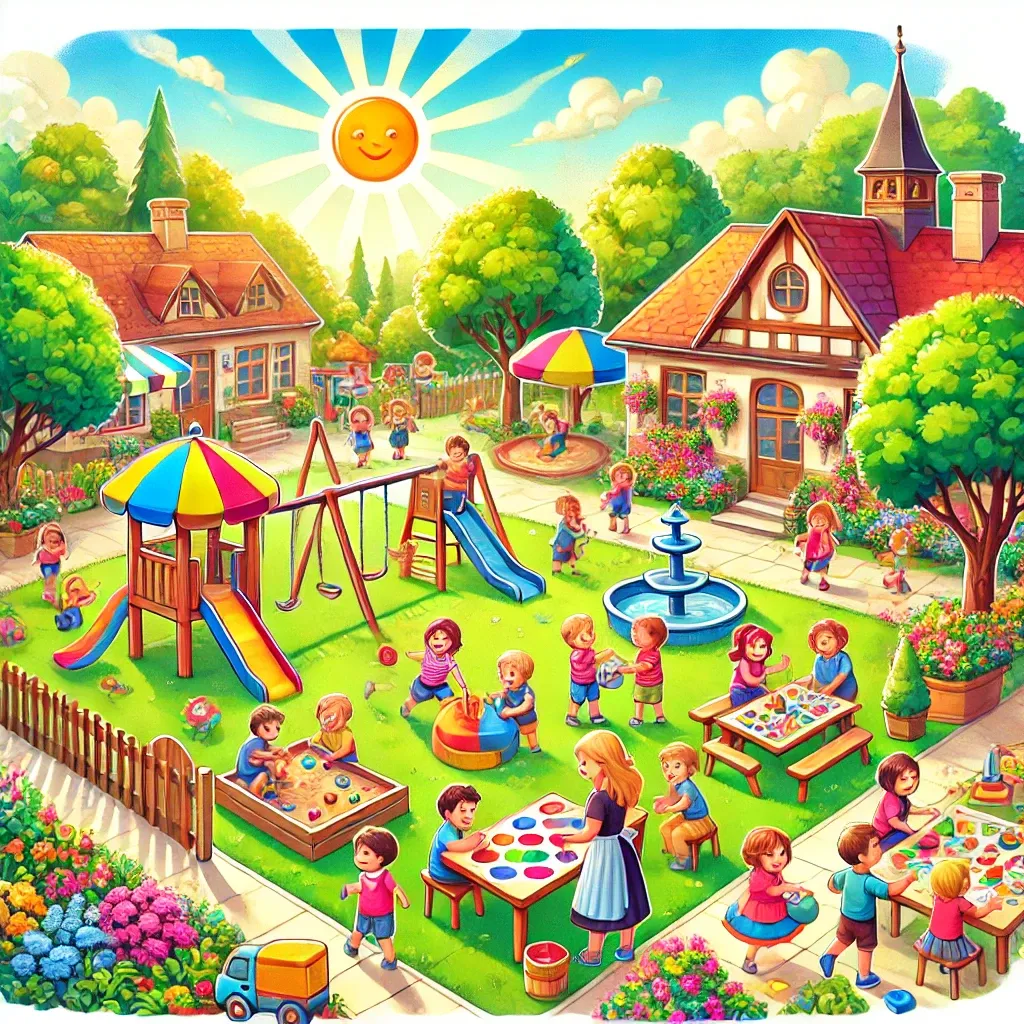How is education organized for foreigners in Hungary?

- What are the features of kindergartens and education in Hungary for foreign citizens?
- How to choose an educational path after 8th grade in Hungary?
Kindergartens in Hungary
In Hungary, as in many other countries, kindergartens, or óvoda, are in high demand. Parents can enroll their children in these institutions from the age of three, although sometimes it is possible to accept younger children if there are available spots.
Foreign citizens with a residence permit in Hungary have the opportunity to send their child to a public kindergarten, where the costs will be approximately 60 euros per month for tuition and 30 euros for meals. If the family's financial situation is not very good, parents can provide documents proving low income, which will entitle them to a waiver of meal fees.
Support for local authorities
It should be emphasized that in some areas of Budapest, local authorities cover all kindergarten costs, which allows several families to benefit from free places. Most Hungarian kindergartens have their own websites where parents can find important information about the enrollment process and deadlines for submitting the necessary documents.
- The articles for the appeal are provided on official websites.
- Lists of kindergartens available for residents of certain areas can be obtained from the visiting nurse at the local clinic.
Registration process
If a foreign family is moving to Hungary during the summer holidays or has not registered their child before the start of the school year, one of the parents needs to visit the main kindergarten in their area of residence. There, the child's information will be entered into the registry, and within a week or two, they will be assigned to a group where there are available spots.
The following documents will be required for initial registration:
- residence permit;
- passport;
- documents about the registration of parents and the child;
- medical insurance.
Language learning by children
Although the Hungarian language is considered difficult to learn, young children quickly start to grasp basic words and phrases when they are immersed in a language environment, and they easily memorize poems and songs. In Hungary, there are also many private kindergartens that offer various educational methods, including the Montessori method.
In some of them, children can learn languages such as:
- Russian
- English
- German;
- and others.
All such institutions are paid, and the cost of education depends on the administrative settings of the region.
Secondary education in Hungary
As for secondary education, foreigners with a residence permit or permanent residence in Hungary can receive it completely free of charge. Typically, children start their education in the first grade at the age of 6 to 8 years. General education in the country is mandatory until the eighth grade, and complete education lasts for 12 years, divided into:
- initial;
- average;
- senior level.
Each stage takes four years. This creates opportunities for children to receive a quality education even in conditions of a limited budget.
After completing the 8th grade, students face an important stage related to choosing their further educational path. The options available to them include enrolling in specialized gymnasiums, colleges for obtaining a complete secondary education, or vocational schools. Achieving success in any of these educational institutions provides the opportunity to later enter a university on a budget basis. During the admission process, graduates of gymnasiums and colleges take both oral and written exams in various subjects, including foreign languages, mathematics, history, and Hungarian language and literature.
International schools in Budapest
There are many private international schools in Budapest, which are usually taught in English. However, in addition to English, students also learn Hungarian. The certificates issued to graduates of such international educational institutions open the door to admission to reputable universities abroad, both in Europe and in the United States.
29 September
9 October 2024
9 October 2024
Higher education system
As for the higher education system, traditionally, medical universities are in high demand in Hungary. However, in recent years, there has been active development of educational programs in areas such as:
- advertising;
- banking
- technology;
- marketing.
Higher education in the country is organized according to the Bologna system and includes both universities and colleges. In total, there are about 70 such institutions operating in Hungary.
Admission for international students
Foreign students can study at public universities in Hungary on equal terms with local citizens and are not required to pay tuition fees. However, the admission process to private non-profit educational institutions can pose some challenges, as a high level of proficiency in Hungarian is often required. Many foreigners prefer private universities where the instruction is conducted in:
- English;
- French
- German;
- sometimes in Russian.
At the same time, students learn Hungarian in parallel.
Dual degrees and language training
Private universities often establish connections with foreign educational institutions, which allows their graduates to obtain dual diplomas — Hungarian and European or American. After completing their studies, students typically master three or four foreign languages at a fairly high level. Hungarian universities recognize Russian certificates and diplomas; however, to enroll, it is necessary to provide documented proof of a good command of Hungarian or English, depending on the specific requirements of the institution. Thus, the education system in Hungary offers numerous opportunities for personal and professional growth that are not available in other countries.

Conclusion
In conclusion, I want to emphasize that the education system in Hungary, including kindergartens, secondary schools, and higher education institutions, offers a wide range of opportunities for both locals and foreigners.
For parents looking for a quality kindergarten for their children, the Hungarian system offers not only affordable but also diverse options, including the possibility of free education for children with limited financial means.
Secondary education
As for secondary education, the Hungarian system actively promotes the development of children and youth, allowing them to choose between various paths for further education, which gives everyone the opportunity to find their own way. Graduates from gymnasiums and colleges open doors to higher education institutions, which is especially important for those striving for quality education.
Higher education
Higher education in Hungary is also not neglected. Students eligible for free tuition at public universities can count on quality programs that meet modern requirements.
It is worth noting that many higher education institutions offer programs in foreign languages and have strong international connections, which opens up numerous horizons for future careers.
The main advantages of the Hungarian education system:
- Diversity of educational institutions:from kindergartens to universities, including private and international schools.
- Availability:the opportunity for free education for children from families with limited financial means.
- Directional Choices:the ability to choose a learning profile at all levels of education.
- International cooperation:programs that allow for obtaining dual degrees and studying multiple foreign languages.
Thus, the Hungarian educational system, despite the difficulties the language may present, offers many opportunities for both adaptation and successful integration of international students and their families. By opening new horizons for learning and professional development, Hungary is becoming an increasingly attractive country for families with children and young people seeking quality education. I hope this information will be useful and help you to make the right choice in the educational sphere.
Comment
Popular Posts
29 September
383
9 October 2024
1485
9 October 2024
9940
Popular Offers

Subscribe to the newsletter from Hatamatata.com!
Subscribe to the newsletter from Hatamatata.com!
I agree to the processing of personal data and confidentiality rules of Hatamatata









